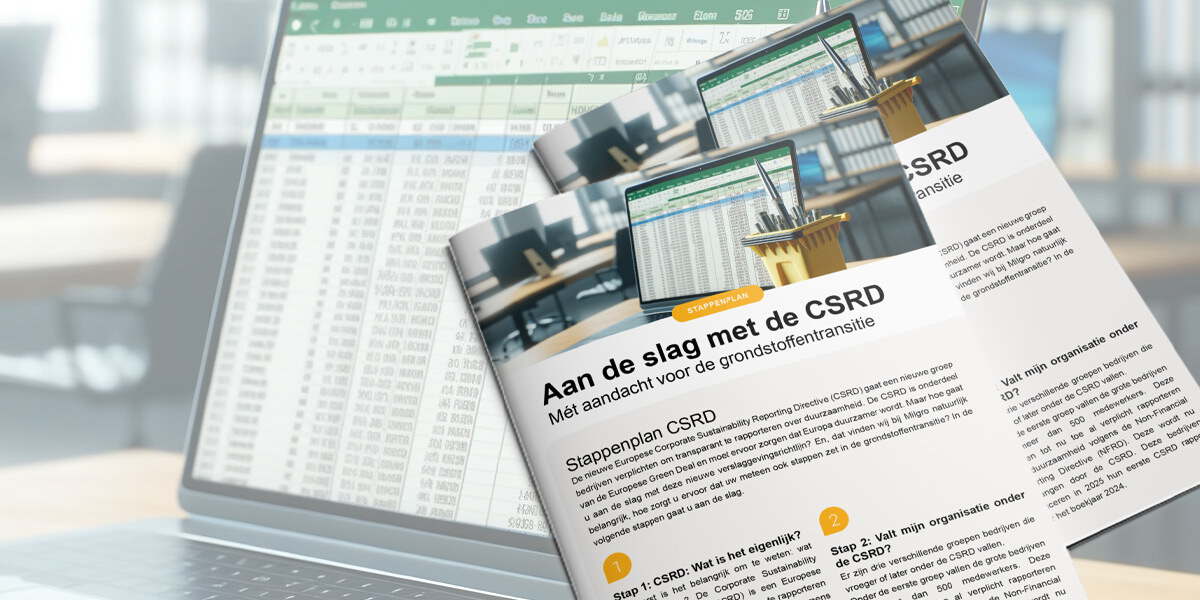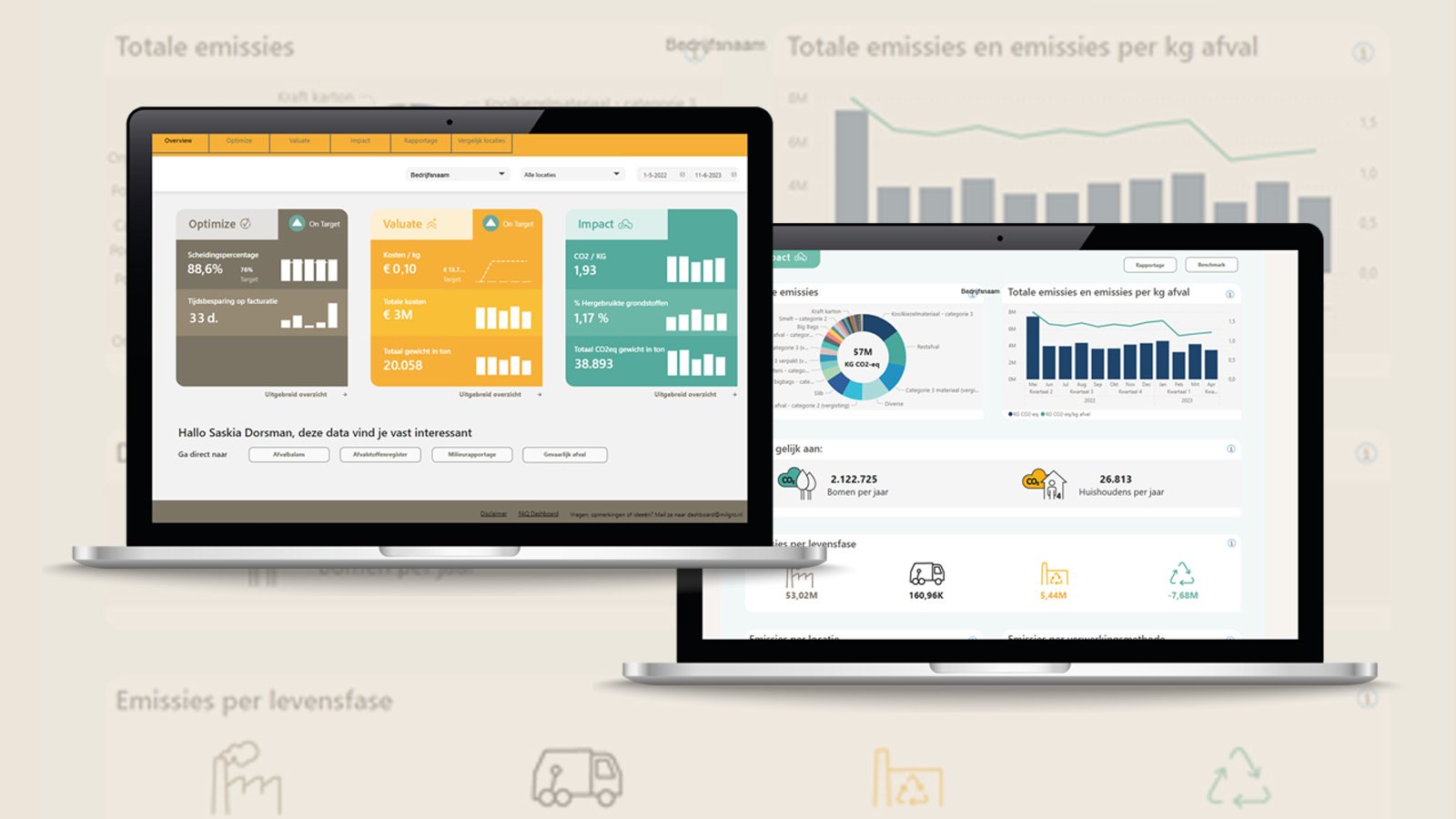If you operate in the field of sustainability like Milgro, you cannot avoid the arrival of the CSRD, the Corporate Sustainable Reporting Directive. It is described as a European statutory reporting obligation. Quite negative actually. Why don't we talk about it as a European statutory reporting opportunity?
Naturally, when we at Milgro familiarized ourselves with the CSRD and investigated the associated ESRS reporting standard on topics relevant to our services, our initial reaction was also: extensive, complex, in-depth; this entails a lot of (extra) work for our clients. Companies are required by the CSRD to report transparently on many different sustainability topics. The CSRD is part of the European Green Deal, which aims to help Europe achieve the Paris climate goals.
Helping Our Clients with Tools
As entrepreneurs, we transformed the challenge into solutions. We created a step-by-step plan to guide our clients through the CSRD. We also assembled a starter kit that we offer for free. This way, clients can easily start gathering information for Chapter E5 (waste and resources) from the reporting standard. Additionally, we made adjustments to our online dashboard so that CSRD-compliant waste and resource data can be produced with the push of a button. Furthermore, we organize webinars and knowledge sessions about the CSRD, as many companies need to get started with it.
Mandatory Evokes Resistance
Mandatory. This is how the CSRD and the associated ESRS reporting standard are often perceived. As an additional requirement on top of all other legal obligations. Meanwhile, entrepreneurs prefer to 'just do business'. In practice, we notice that the introduction of this sustainability reporting directive sometimes generates resistance among entrepreneurs. They fear that the reporting will take up so much of their organization's resources that it will detract from their societal projects.
Read also

Useful infographic CSRD terms
The Bigger Perspective
But what if you look beyond the complexity and difficulty of implementation? What if you consider the bigger picture, and see sustainability reporting not as an obligation, but as an opportunity? An opportunity to focus on sustainability themes that truly matter.
Even for entrepreneurs who are not currently required to report, the CSRD offers opportunities. These entrepreneurs can distinguish themselves professionally by having the necessary sustainability information ready when requested by their chain partners. With this perspective of opportunity, the initial sentiment of reluctance could easily change. Then the CSRD becomes a way to conduct future-oriented business.
Read also

CSRD step-by-step plan
Improvement Potential in Practice
Consider our part of the CSRD (Chapter E5 of the ESRS reporting standard); the criteria for waste and resources. When companies make data on waste management transparent, it almost invariably reveals enormous improvement potential. This data allows you to manage it effectively. And reporting on it ensures that the voluntary nature of tackling waste reduction and resource management disappears. After all, all your stakeholders can see how you are performing in these areas. In practice, we see that it can result in significant waste reduction, better resource management, lower costs, and a reduction in CO2 emissions for companies.
From Obligation to Opportunity
And this is just a part of the overall reporting standard. It also covers climate change, pollution, biodiversity, own employees, and working conditions in the value chain. It will take some effort in the coming years to gather all this information, but in the long term, these are all opportunities for companies to distinguish themselves with sustainability.
Stay informed
Stay up to date on all new developments? Follow us on LinkedIn or Instagram. Or subscribe to the newsletter. Are you curious about what Milgro can do for your operations and waste process? Contact us













